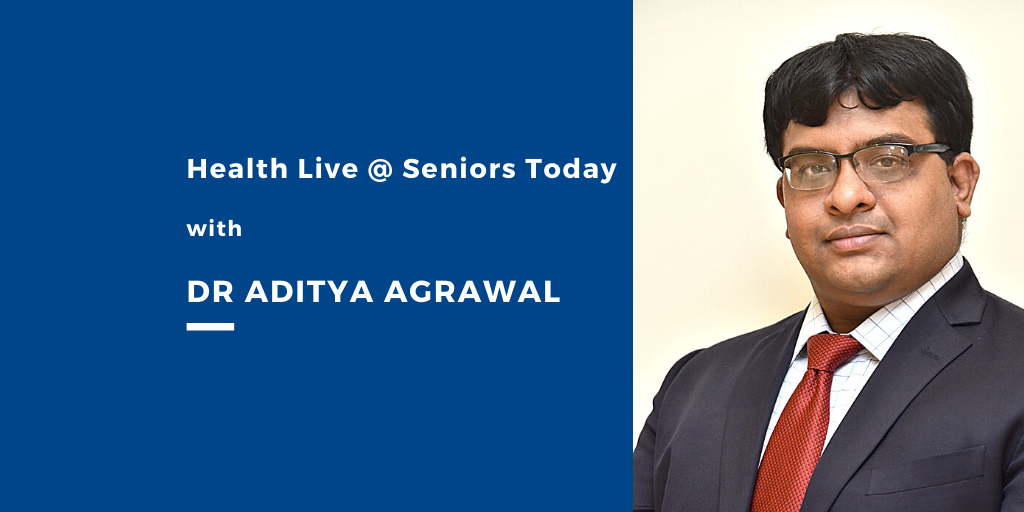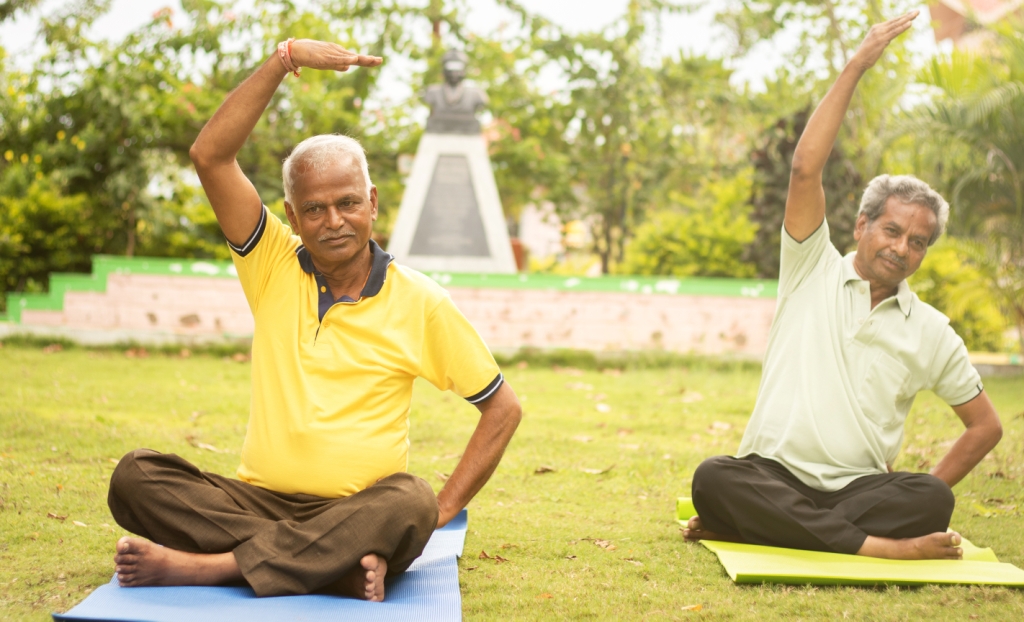On Saturday, June 19, 2021, Seniors Today hosted its weekly Health Live session with Dr Aditya Agrawal on dealing with the second ‘shock wave’.
Dr Aditya Agrawal is a leading Consultant Pulmonologist attached to several large hospitals in Mumbai. He is extensively trained in respiratory diseases both in India and New York.
Dr Agrawal has also wrote the Seniors Today magazine cover story ‘Shock Wave’ in the June 15, 2021 issue of Seniors Today.
In the Health Live session on June 19, he spoke with Seniors Today Editor Pradyuman Maheshwari on the article he wrote and also answered questions from attendees.
Here are some of the key takeaways from the session:
Coronavirus is like any other virus. And most viral infections and illnesses are self-limiting — which means that the patients get better by themselves but at the same time you have to keep an eye out for the patients who might fall through the gap. And these patients are the patients who come with the symptoms of mild, moderate or severe Covid.
In the second wave, the rise in the number of cases was exponential.
The most important thing with Covid, Dr Agrawal, says is managing the symptoms. Patients tend to ignore their symptoms. The symptoms may be mild but they are significant. They are enough to isolate yourself, quarantine yourself and test yourself. This will help in stopping the spread of the infection.
Until we have herd immunity, which means until we have immunised at least 70-80% of our country’s population, we are going to have wave after wave. It is not going to end at the 2nd, 3rd, or 4th wave unless and until we don’t vaccinate our population.
If you’ve had the infection in the past, it is imperative that you wait for at least three months after the best of your symptoms before getting the vaccine, because your body has sufficient antibodies against the infective agent and this vaccine would do more good to someone who has not had the infection or the vaccine.
The best spacing between the two doses of the Covishield vaccine is 12 weeks.
The lockdown restrictions may have been eased but you need to make sure that you practice Covid-appropriate behaviour- wear your masks, maintain social distancing, wash and sanitise your hands.
People want to see objective results. You never asked/ questioned the doctor why you or your child was given the BCG vaccine. It was just something you accepted and approved.
We are, at the moment, living in an era where the doctors and scientists have managed to make a vaccine within a year of the pandemic starting. The reason why we need to vaccinate everybody is, until and unless that is not achieved the chances of reinfection are there.
When you take a vaccine, for example the AstraZeneca vaccine, it provides you about 70-80% efficacy. When you take it 12 weeks apart, which means of the 100 people who are given the vaccine, 20 people might still get the infection.
Some things you can do post contracting the Covid infection and recovering from it:
- You should still maintain Covid-appropriate behaviour
- You should get your Covid vaccination when you’re due for it
- The post-Covid complications you need to look for depend on the severity of your disease- if it was mild/ asymptomatic there are no serious complications but you should keep an eye out for new onset of symptoms- breathlessness, cough, new onset fever, sudden headache, numbness in your hands and feet and chest pain. Sometimes some rare complications may include- pancreatitis, pain in the abdomen. If any of these symptoms start suddenly, you need to see your doctor immediately.
Dr Agrawal says he’s not an alarmist and most of the patients who did not need to be hospitalised landed up in the hospital because of their own fear.
You should check your oxygen levels at your home by placing the ox-meter on your finger for a minute and then check the reading at the end of a minute. A saturation level of upto 97% is normal. Upto 94% saturation, we can easily manage the patient at home. If it is below 94%, the patient needs to go to the hospital. If it is below 90% the patient may need to be admitted in the ICU.
The reason why you should not buy an oxygen concentrator is – who will manage you at home and how? It is not as simple as just putting on the concentrator. When we give oxygen therapy, there is a lot of data and science that goes behind it. In fact, sometimes giving too much oxygen can be detrimental to your health.




